News
-
 Health & Medicine
Health & MedicineSocial distancing, not travel bans, is crucial to limiting coronavirus’ spread
Everything from waving hello instead of shaking hands to cancelling large gatherings of people will help slow the spread of COVID-19.
By Jonathan Lambert and Tina Hesman Saey -
 Health & Medicine
Health & MedicineCruise ship outbreak helps pin down how deadly the new coronavirus is
Infections and deaths on the Diamond Princess suggest that, in the real world, 0.5 percent of COVID-19 infections in China end in death.
-
 Planetary Science
Planetary ScienceCoronavirus and technical issues delay a Mars mission’s launch
The joint European-Russian ExoMars rover’s launch was postponed from July to 2022 so technicians could resolve issues with the landing equipment.
-
 Astronomy
AstronomyThe star Betelgeuse might just be dusty, not about to explode
A new study suggests that dust recently expelled by Betelgeuse is why the star dimmed suddenly in late 2019 before brightening again.
-
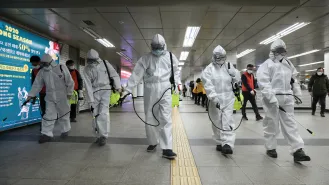 Health & Medicine
Health & MedicineWhat WHO calling the coronavirus outbreak a pandemic means
The world’s top global health organization is asking countries to double down on efforts to both contain the virus and mitigate its impact.
-
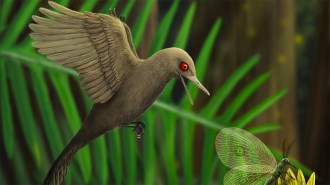 Paleontology
PaleontologyThis ancient dinosaur was no bigger than a hummingbird
The skull of one of these Mesozoic Era birds — the tiniest yet known — was discovered encased in a chunk of amber originally found in Myanmar.
-
 Astronomy
AstronomyHeavy metal may rain from the skies of planet WASP 76b
Astronomers saw hints of iron rain on an ultrahot gas giant, an exoplanet where starlike atmospheric temperatures drive weird weather.
-
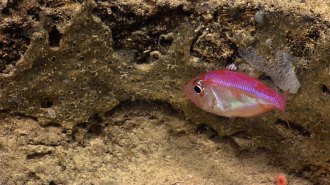 Life
LifeThis is the first deep-sea fish known to be a mouthbreeder
Scientists found over 500 eggs attached to the inside of a parazen fish’s mouth.
By Jake Buehler -
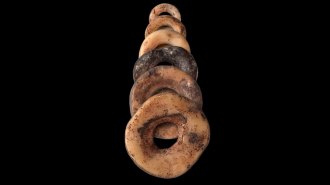 Anthropology
AnthropologyAn ancient social safety net in Africa was built on beads
A Stone Age network of communities across southern Africans was established using ostrich shell beads by around 33,000 years ago.
By Bruce Bower -
 Physics
PhysicsEven a weird hypernucleus confirms a fundamental symmetry of nature
A particle accelerator experiment reveals that a symmetry of nature holds up and hints at what could lurk at the heart of a neutron star.
-
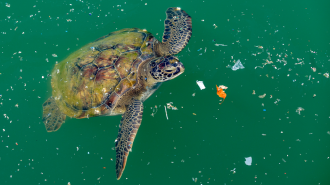 Animals
AnimalsSea turtles may confuse the smell of ocean plastic with food
Sea turtles respond to the smell of plastic that’s been in the ocean similarly to food, suggesting the reptiles may end up eating the harmful debris.
-
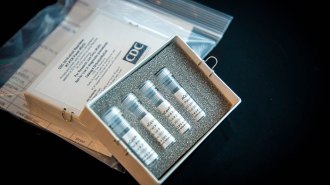 Health & Medicine
Health & MedicineWhat you need to know about coronavirus testing in the U.S.
Testing for the new coronavirus is still limited but could ramp up soon, thanks in part to tests developed by state laboratories and companies.